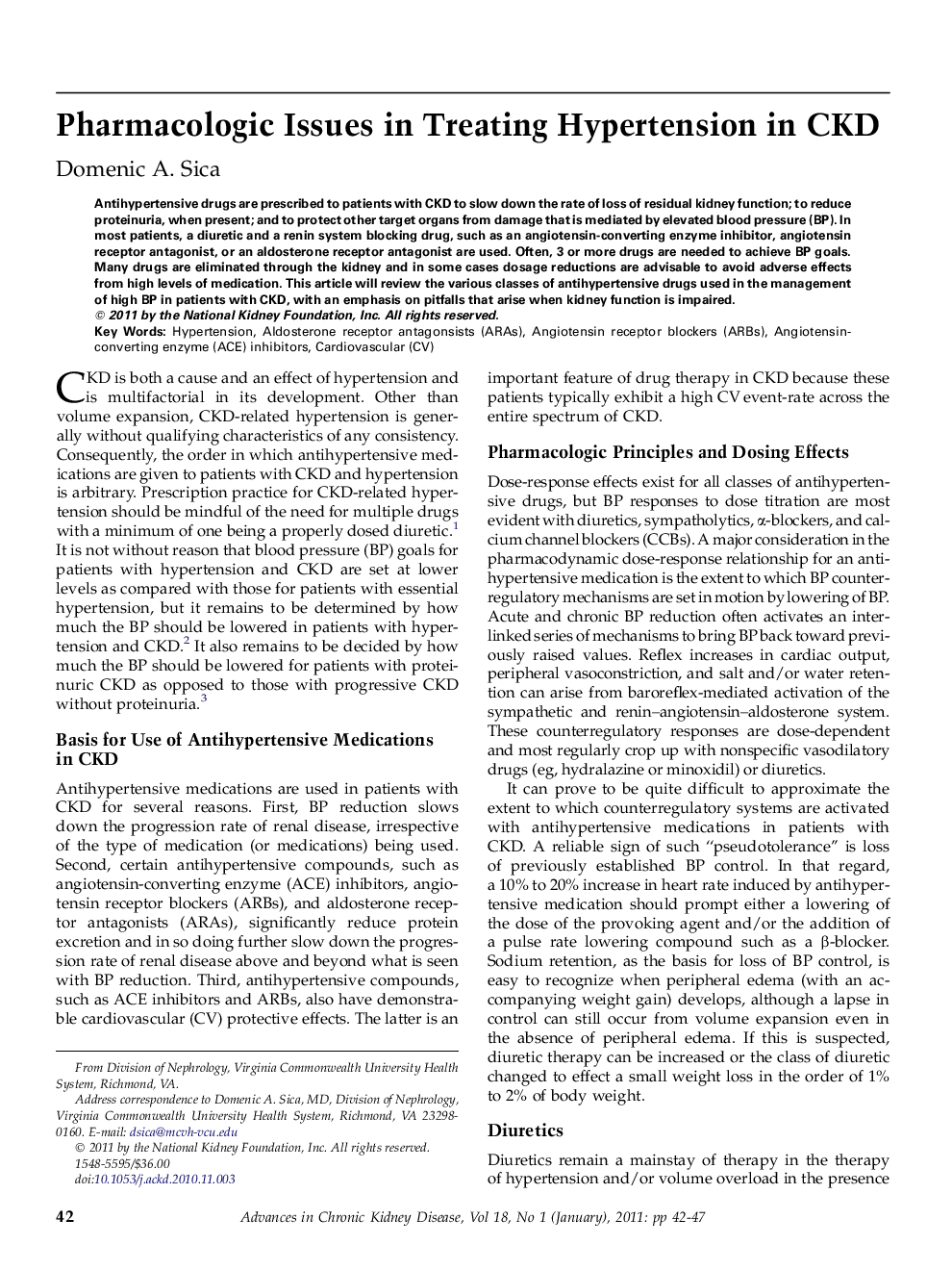| Article ID | Journal | Published Year | Pages | File Type |
|---|---|---|---|---|
| 3847111 | Advances in Chronic Kidney Disease | 2011 | 6 Pages |
Abstract
Antihypertensive drugs are prescribed to patients with CKD to slow down the rate of loss of residual kidney function; to reduce proteinuria, when present; and to protect other target organs from damage that is mediated by elevated blood pressure (BP). In most patients, a diuretic and a renin system blocking drug, such as an angiotensin-converting enzyme inhibitor, angiotensin receptor antagonist, or an aldosterone receptor antagonist are used. Often, 3 or more drugs are needed to achieve BP goals. Many drugs are eliminated through the kidney and in some cases dosage reductions are advisable to avoid adverse effects from high levels of medication. This article will review the various classes of antihypertensive drugs used in the management of high BP in patients with CKD, with an emphasis on pitfalls that arise when kidney function is impaired.
Related Topics
Health Sciences
Medicine and Dentistry
Nephrology
Authors
Domenic A. Sica,
